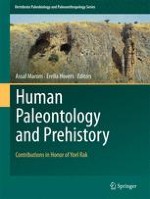Abstract
Darwin argued that man, including his mental faculties, developed from his sub-human ancestors by natural selection, sexual selection, and the use and disuse of organs (in the Lamarckian mode). He rejected any non-natural involvement in this process, and described a large number of behavioral and mental properties, including language, which can be found in rudimentary form in some animals. However, he assumed this, prior of the discovery of the crucial differences between the instinctive and specific calls of animals, and the symbolic language of humans. His major conclusion was that although the gap in the mental properties between humans and their closest relatives is enormous, it is quantitative rather than qualitative. With regard to the different human races, Darwin suggested that they differ in their inherited mental properties, but belong to a single species. In contrast to Darwin, Wallace did not regard modern human “primitives” as candidates that could fill the gap between humans and apes. He envisioned two steps in human evolution: first, the development of upright posture and freeing of the hands, brought about by natural selection, and then a second step that involved mainly the evolution of the brain and the mind. Wallace subsequently argued that some of the higher human mental abilities (mathematics, art, or the use of abstract concepts) were not the result of natural selection, since they are beyond utility. He claimed that these properties developed as a result of the action of a “higher intelligence”, which guides human intelligence and morality, and the whole evolutionary process, purposefully. There is some disagreement as to whether Wallace’s belief in the action of a “higher intelligence”, and his descent from Darwin on this issue, were the result of his support of spiritualism or was based on purely scientific arguments. Darwin, on his part, forcefully rejected Wallace’s support of the involvement of non-natural causes in evolution of human mental faculties and provided arguments that they were the result of the same mechanisms that acted in the formation of the body, and generally in species evolution. Later, S.J. Gould pointed out that the rapid rate of the development of several mental functions, which Wallace had regarded as an indication of a lack of role in the struggle of life are actually the result of cultural evolution. Both Darwin and Wallace did not pay sufficient attention to the large diversity in human mentality, and the rare and unique existence of individuals with outstanding achievements (“geniuses”). The latter’s unusual and unique creativity in various artistic, philosophical and related activities apparently developed intrinsically, from some “inner resources”, unrelated to the Darwinian “struggle for life”.
